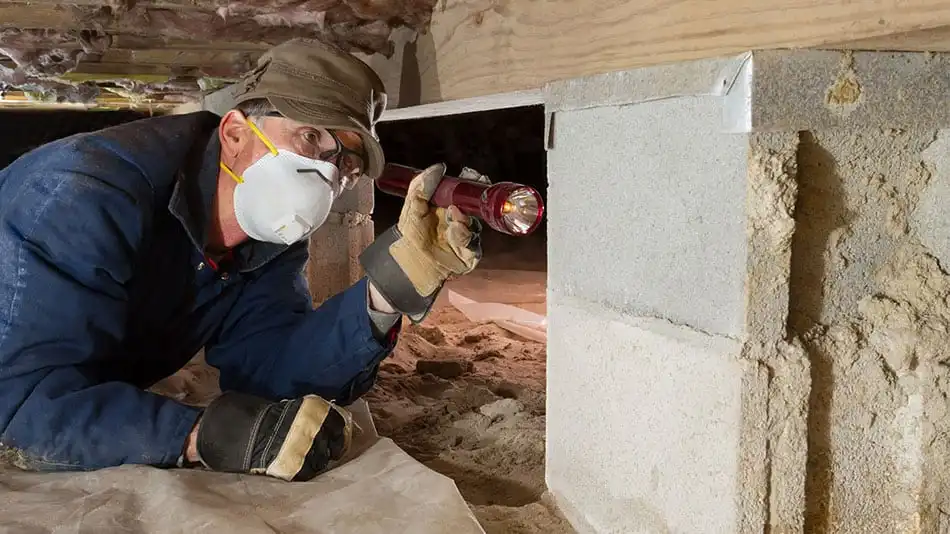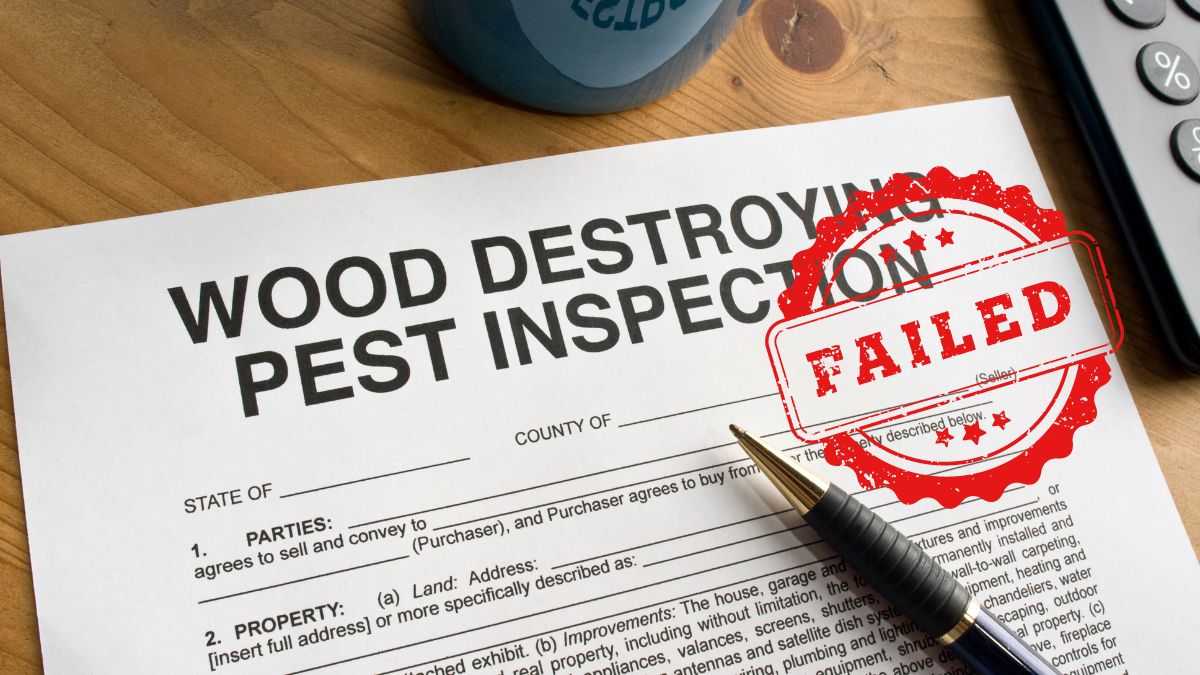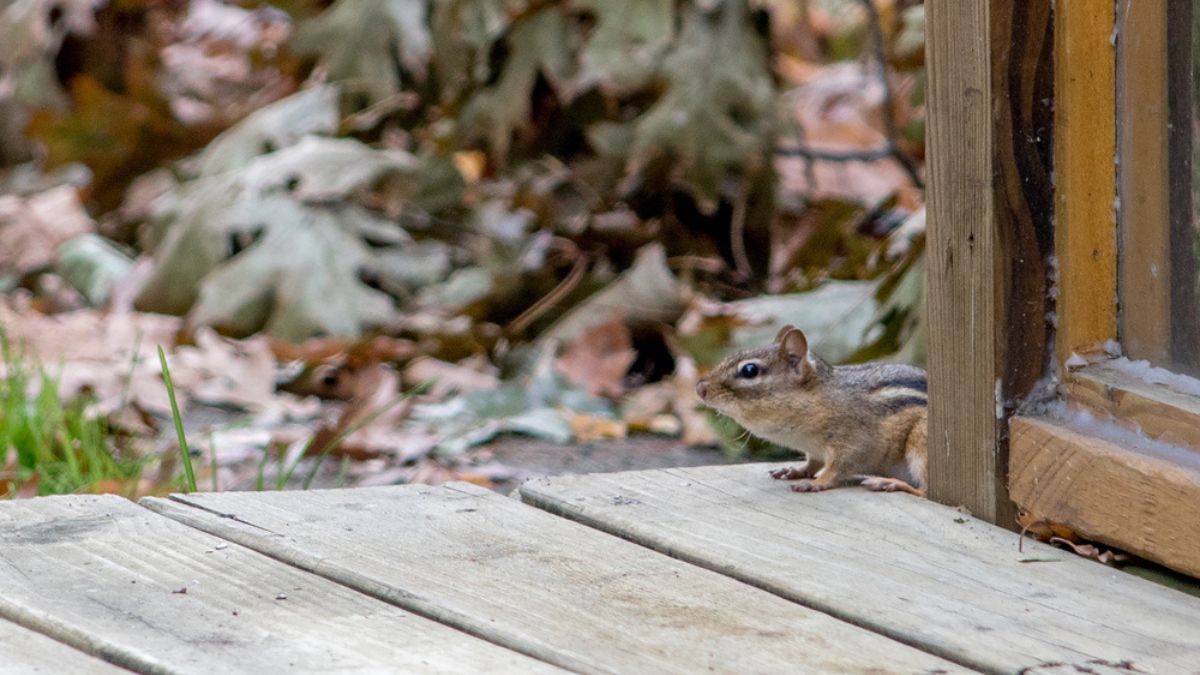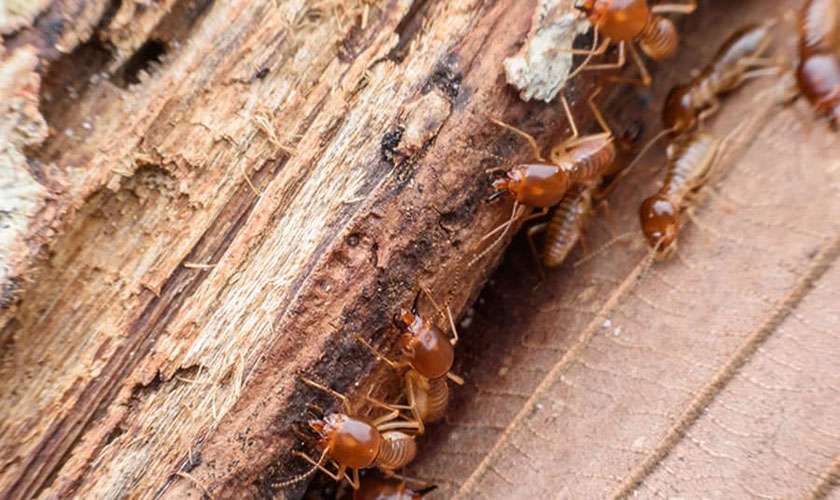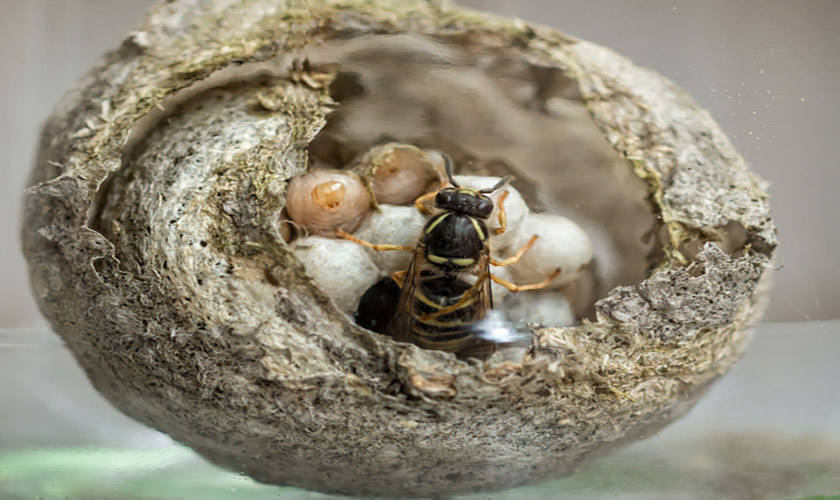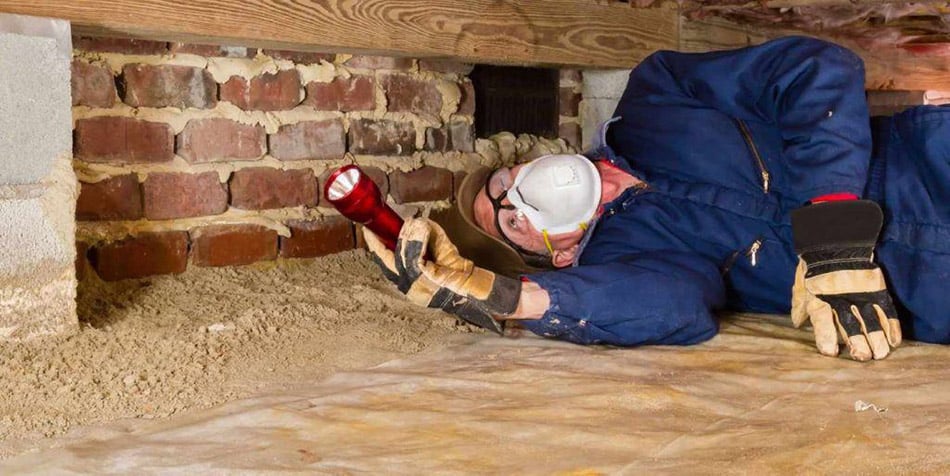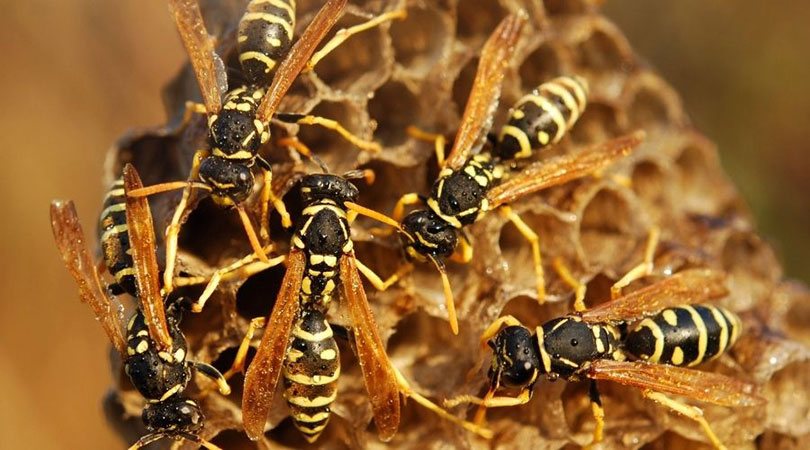
Most people are terrified of wasps, but they are beneficial insects in gardens. Wasps are important members of local ecosystems. They pollinate plants and prey on various insects; they help keep the ecosystem balanced.
Wasps are predatory by nature, and they are highly aggressive if they feel threatened in any way. They mark their opponent/victim with a pheromone, and the whole colony will come out to attack. This number of wasp stings is excruciatingly painful, and stings can become infected. Wasps may build nests around houses, leading to clashes between humans and wasps; wasps are usually the victors.
There are several ways to stop wasps from building nests in undesirable places.
- Remove food sources.
- Seal entry points.
- Paint undersurfaces of the roof overhang.
- Use fake wasp nests.
- Plant repelling herbs.
- Use aroma oils.
- Wasp traps.
- Keep doors and windows closed.
It is challenging to balance our desires not to harm the ecosystem but to protect ourselves from nasty stings from wasps. However, when wasps build nests around our homes, it causes difficulty, so it would be easiest to prevent them from deciding to cohabit with us. This article will find eight easy steps to deter wasps from building wasps around your home or in other unwanted areas.
Get FREE quotes from licensed pest control technicians in your area today. Whether you need spraying for ants, roaches, spiders, ticks, mosquitos, or bed bugs, We Can Help! All technicians are screened, licensed, and insured.
1. Remove Food Sources
Removing the food source of an unwanted pest around your home is often the best way to discourage them from thinking it is a good place to establish a home for themselves.
Protein
Wasps are predators and eat other insects or even spiders. It is logical then that wasps are attracted to areas where human food waste is found. Other insects such as flies will populate these sites and become a hunting ground for wasps.
Not only do wasps hunt other insects, but they have also learned to eat any protein from human food waste they find. Human food waste provides an easy food source without the problem of expending energy catching prey.
Trash
Wasp’s demand for protein is high in early spring and summer. Therefore, it is essential to ensure all refuse is stored in bins with firmly closing lids and regularly remove the trash. The house owners should closely monitor compost bins to become an attraction to wasps and, if necessary, should be relocated to an indoor area such as a shed.
Pet Food
Pet food must not be left out. Pets should be fed at specific times, and then bowls collected and washed.
Sugar
In late summer and early fall, wasps begin to feed on sweeter items. Ensure that empty soda cans, fruit juice, and other sugary food sources are not left out in the open. Fruit falling from fruit trees should be collected and disposed of in sealed bins so the wasps cannot access it.
2. Sealing Entry Points
Usually, you will notice individual wasps in the home before they begin to build a nest. Observe the wasp and try to detect where it is gaining access. Seal all cracks and holes in walls, doors and, window frames so that wasps cannot get in. Gaps around electrical conduction wires and plumbing are classic entry points for insects to gain entry to homes.
3. Paint Your Roof Overhang Blue
An old Pennsylvania Dutch remedy for wasps has become very popular in most southern states. It says that painting the undersurface of your roof overhang or porch ceiling a bright sky blue or robin egg blue will deter wasps and flying insects. Many paint companies carry this color specifically for this purpose.
The experts have proposed several theories as to why this practice works. Some people believe that blue confuses insects; they cannot distinguish between a solid surface and the sky. A theory based on logic is that the paint people used contained lye, a knockdown insect killer. As the paint faded or flaked, people would repaint the porch ceiling. Therefore more lye was once again applied, repelling insects.
Many people are convinced this theory works. Trying this method will not be a wasted effort – even if the only benefit gained is a pretty porch ceiling. There is the option of including poisons such as cypermethrin in the paint for the home. You can paint the ceiling or outside of your house to deter insects.
4. Fake Wasp Nests
Wasps are territorial insects and will not build a nest where there is another wasp nest; this is the theory underpinning the use of fake wasp nests. Some companies have started selling artificial wasp nests that you may hang up in relevant areas to prevent wasps from building nests.
Simple brown paper bags stuffed with paper or other materials may also be used as a cheaper alternative. This method is an eco-friendly way of deterring wasps. Your household may need several fake wasp nests at strategic points around the home.
5. Plant Herbs That Deter Wasps
Wasps rely heavily on scent and pheromones to communicate. Herbs with intense aromas are likely to deter wasps from settling in an area. Herbs such as spearmint, eucalyptus, citronella, garlic, nasturtiums, and pyrethrum will deter wasps. They can be included amongst other plants that surround the house borders. Some people like to have herbs in pots on their windowsills.
6. Aroma Oils That Keep Wasps Away
Sprays can be made of aroma oils, water, and a few drops of shampoo. This mixture is then sprayed on porch ceilings, walls, roof overhangs, and anywhere suitable nesting sites for wasps.
The aroma oils can bring a pleasant smell to the home that humans enjoy, but wasps hate. Suitable aroma oils are lavender, eucalyptus, cedar, citronella, peppermint, basil, and bergamot citrus oil.
We encourage you to read more about the different types of smells wasps hate that can help you deter them a bit more.
7. Wasp Traps
There are a variety of different wasp traps on the market. Most of these rely on water inside the traps to drown the wasps. The wasps are attracted by bait, which is either protein-based or sweet-smelling substances.
The wasp enters the trap through a narrowed opening, cannot exit quickly, and drowns in the water. Many people prefer to make water traps using soda pop bottles. This method is not eco-friendly and may disrupt the natural ecosystem in your area or garden, resulting in the overpopulation of other types of insects.
8. Keep Windows And Doors Closed
Keeping windows and doors closed helps prevent wasps from entering homes in the first place. In hot climates, however, this is not always practical. You may have continued problems with many different flying insects.
In that case, it may be beneficial to invest in window and door screens that can be kept closed while allowing fresh air to circulate. The screens keep out the wasps and other insects that form part of the wasps’ food supply.
Call Professionals To Remove Wasp Nests
If you have a wasp nest, it is best to call a professional company to remove it safely. Wasp stings are painful, and a single wasp may sting you several times. Multiply this by eight or ten wasps, which may target you for disturbing their nest, and you will be very sore.
Wasp stings may become infected, leading to severe health conditions. Some individuals are allergic to wasp stings, which rapidly become life-threatening.
Spraying wasps with insecticides will expose everyone in the immediate area to these poisons, which can cause detrimental health issues, including breathing problems from inhalation.
Professional companies can remove wasps and their nests safely. The wasps may be donated to pharmaceutical companies that use their venom to create various products. Professional companies may employ other eco-friendly solutions. You can find a company that complies with your code of ethics.
Conclusion
It can deter wasps from building their nests around your home or in other undesirable locations. It is best to use harmless techniques such as limiting food sources, planting herbs, aromatic oils, or fake wasp nests to discourage wasps.
Other ideas include painting your roof overhang blue, keeping windows and doors closed, and sealing entry points. These methods do not harm the wasps and preserve the ecosystem. Other methods, such as wasp traps, kill the wasps, but these are not ideal.
Get FREE quotes from licensed pest control technicians in your area today. Whether you need spraying for ants, roaches, spiders, ticks, mosquitos, or bed bugs, We Can Help! All technicians are screened, licensed, and insured.


